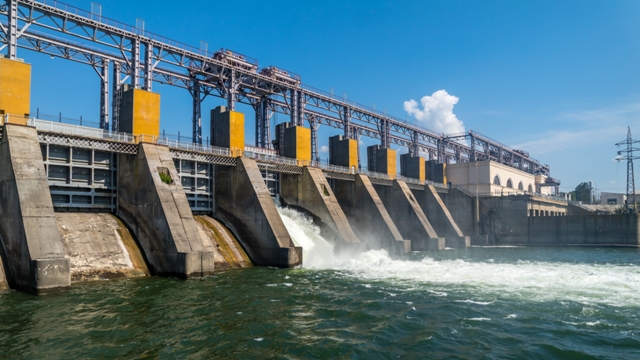
Trio of New England states join forces on clean energy procurement
by Susan Haigh, The Associated Press

Connecticut, Rhode Island and Massachusetts looking at 50 proposals for projects ranging from hydro power to a transmission line from Canada
HARTFORD, Conn.—Connecticut, Rhode Island and Massachusetts officials are joining with electric utilities to evaluate more than 50 solicitations from companies to build plants that would generate clean energy for all three states.
The states are hoping to leverage their combined purchasing power and attract projects they possibly couldn’t lure on their own. The goal is to ultimately lower consumers’ utility costs in a high-price region of the country, while also meeting respective clean energy and environmental goals in fuel cell, solar and hydropower election generation.
“It’s the first time the New England states have joined together in a co-ordinated procurement for clean resources,” said Katie Dykes, deputy commissioner at the Connecticut Department of Energy and Environmental Protection. “When you can expand your buying power and shop together, you can perhaps attract bigger bids.”
And that’s what apparently has happened, with more than two dozen entities proposing more than 50 projects.
Officials recently announced they needed more time for the evaluation process “given the complexity of the analysis and the volume of bids.” Regulatory approvals of the selected projects are expected later this year. The proposed projects under consideration include solar, wind, hydropower and fuel cell power generators located within and outside of southern New England. Some are in the early stages of development while others have gone through approval processes.
For example, the proposed Beacon Falls Energy Park, potentially the world’s largest fuel cell-energy park, received approvals in January from the Connecticut Siting Council. The developers are now waiting for approval to qualify for long-term contracts with electric utilities, a designation that will help them obtain financing for the project.
Other submitted bids include a solar installation in Moscow, Maine; transmission lines that would deliver wind and hydropower energy from Maine and Canada; and a solar operation in Simsbury, Connecticut, proposed by the Rhode Island developer of the state’s new wind farm on Block Island.
The three-state request for these larger scale projects is one of several ways Connecticut, Massachusetts, Rhode Island and other New England states are working together to bring more reliable, affordable and clean power to the region. For example, the governors said they want to work together to plan and develop electric transmission lines and natural gas pipelines in the region. Last year, the region’s power system authority warned how the lack of infrastructure was threatening reliability.
“Continued state attention is urgently needed to achieve clean, affordable and reliable power on which our families and businesses depend,” the New England governors said in an April 2015 joint statement. “This problem is greater than any one state can solve alone.”
Each state is still embarking on its own energy plan. Connecticut has been seeking bids for more natural gas pipeline capacity, natural gas storage and small-scale clean energy projects. In Massachusetts, Gov. Charlie Baker, a Republican, signed legislation this month that ramps up the state’s reliance on renewable and alternative sources of energy.
In Rhode Island, there’s an effort to have renewable energy sources make up 38.5 per cent of the state’s portfolio by 2035. Rick Ucci, the state’s deputy commissioner of energy, said the state has pushed for greater energy efficiency initiatives, more solar and projects like the Block Island wind farm, as well as work with Connecticut and Massachusetts.
“We believe in a strategy that pulls as many levers as we can and working in co-ordination with our good neighbours across the region to achieve our common goals,” Ucci said.
